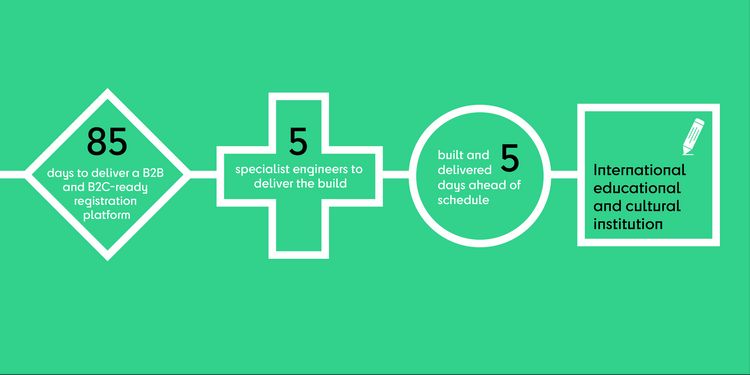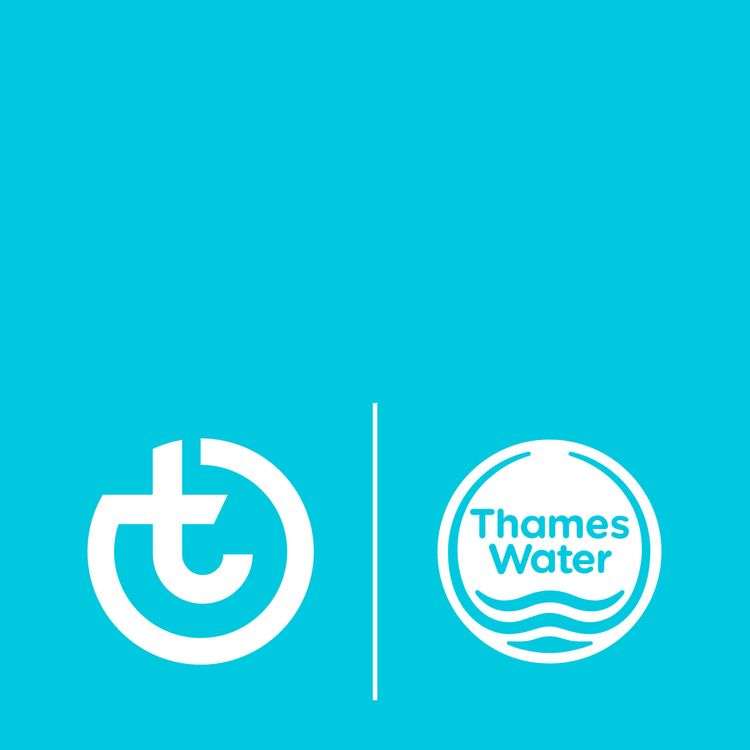Helping Thames Water decouple from complex and costly legacy technology contracts, migrate to modern cloud-based platforms, and build a team of skilled system engineers.

International cultural institution: Building a digital customer registration platform
The background
Our customer is an international educational and cultural institution that specialises in language teaching and exams.
Pre-pandemic, their core business was built on face-to-face language learning and exams which required in-person registration. Covid-19 upended access to these services, putting registrations and attendance completely on hold. Stripped of a way to reach its audience, our customer recognised a strategic imperative to digitise their offerings.
The solution
There was an urgent need to quickly implement a digital registration platform to reinstate access to the products and services that had been frozen as a result of sweeping Covid-19 restrictions.
We started by working with the CIO and technology leadership team to map out their requirements and come up with possible solutions. We agreed that the starting point should be an MVP of a registration platform and B2B/B2C customer journey with two core functions:
- Letting users register for services online; and
- Letting the in-house teams edit and manage customers’ information on the platform.
Pace
Drawing on our large community of associates, we rapidly assembled a team of Javascript and .NET experts to deliver a highly functioning MVP user journey and platform within the customer's deadline of 90 days. Key capabilities included customer enrolment, the ability to amend customer details, and functionality to bulk upload candidates. Our team used the Javascript React Library to develop the front end and .NET for the registration function and APIs, successfully building the new products onto the existing Azure infrastructure and engineering patterns.
Quality
At the same time, we laid the groundwork for ensuring a successful user journey beyond the registration platform. Once registered, users need to be connected to the provider that will host the exams themselves. To prepare for this step, our experts integrated the platform with the exam provider in a sandbox environment, creating an isolated testing environment that lets them monitor and continue developing the integration without disruption.
Culture
Parallel to the product delivery, we were delivering on our Zero Dependency promise – meaning that the in-house team would be fully versed in the technologies and working patterns needed to keep the platform up and running independently at the end of our project. We started by sitting down with the core teams to evaluate their current capabilities by applying our home-grown skills and culture assessment framework. They were completely new to agile delivery, so we agreed on a critical need to upskill them in this area to ensure they could take full ownership of the product. To help them make the substantial transition from traditional delivery methods to agile, we set out an ambitious roadmap for implementing and sustaining the changes. Within 90 days, we had successfully coached the teams on key agile concepts, run one-to-one behaviour workshops, and implemented frameworks that have now empowered the teams to adopt their new, agile ways of working indefinitely.
Results
A major stream of revenue and future business for our customer was at stake. In this time-sensitive situation, we helped them rapidly complete the critical first step of their digitisation strategy. We deployed a team, built and delivered a fully-fledged B2B and B2C-ready platform — all five business days ahead of schedule.
The MVP platform for managing customer information was exceptionally functional and user friendly. In the show and tell, we decided to do things a bit differently: instead of our engineers leading the demo, we asked a member of their in-house team log in to live-test the platform as a real end user. They navigated the platform intuitively and with ease, demonstrating high functionality in key actions including enrolling, editing and bulk uploading customers.
The MVP platform demonstrated feasibility, risk and technical capability, and was instrumental for securing continued stakeholder trust for the next steps of the project. The customer team has full ownership of the platform and its maintenance in its current iteration, our growth model for agile working is in motion, and we are continuing our work to empower our customer to digitise at pace.


The Import Control System (ICS) is a Europe-wide platform needed the build of the greenfield safety and security system to bring together all elements of the goods imports and declarations.
Major telecomms company needed help to improve the conversion rate of new customers, while also improving the containment rate.